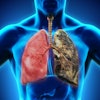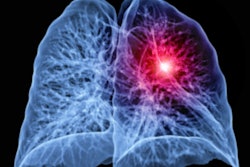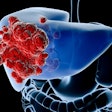Reduced-dose CT for lung cancer screening is widely accepted among an adult patient population, but whether it is effective in children hasn't been thoroughly investigated, noted a team led by presenter Samuel Brady, PhD. The group conducted a study that included 78 cancer patients between the ages of four and 21 who underwent CT exams with both standard and reduced radiation dose between November 2018 and August 2020. Three radiologists read the exams.
In the patient cohort, 58% of patients had a total of 162 lung nodules with a mean size of 3.4 mm.
Brady and colleagues found that the mean estimated effective dose for the reduced-dose CT exam was 0.3 mSv, an 82% reduction compared with the standard dose of 1.8 mSv. Sensitivity on reduced-dose CT ranged from 63% to 77%; specificity ranged from 80% to 90%. But 92% of the nodules were identified on the reduced-dose CT exam.
The results are good news for a vulnerable population that must be exposed to radiation as part of their care, Brady and colleagues concluded.
"Our results demonstrate that CT performed at a dose similar to a two-view chest radiograph has acceptable diagnostic performance for nodule detection in children with cancer," they wrote in their study abstract.



















